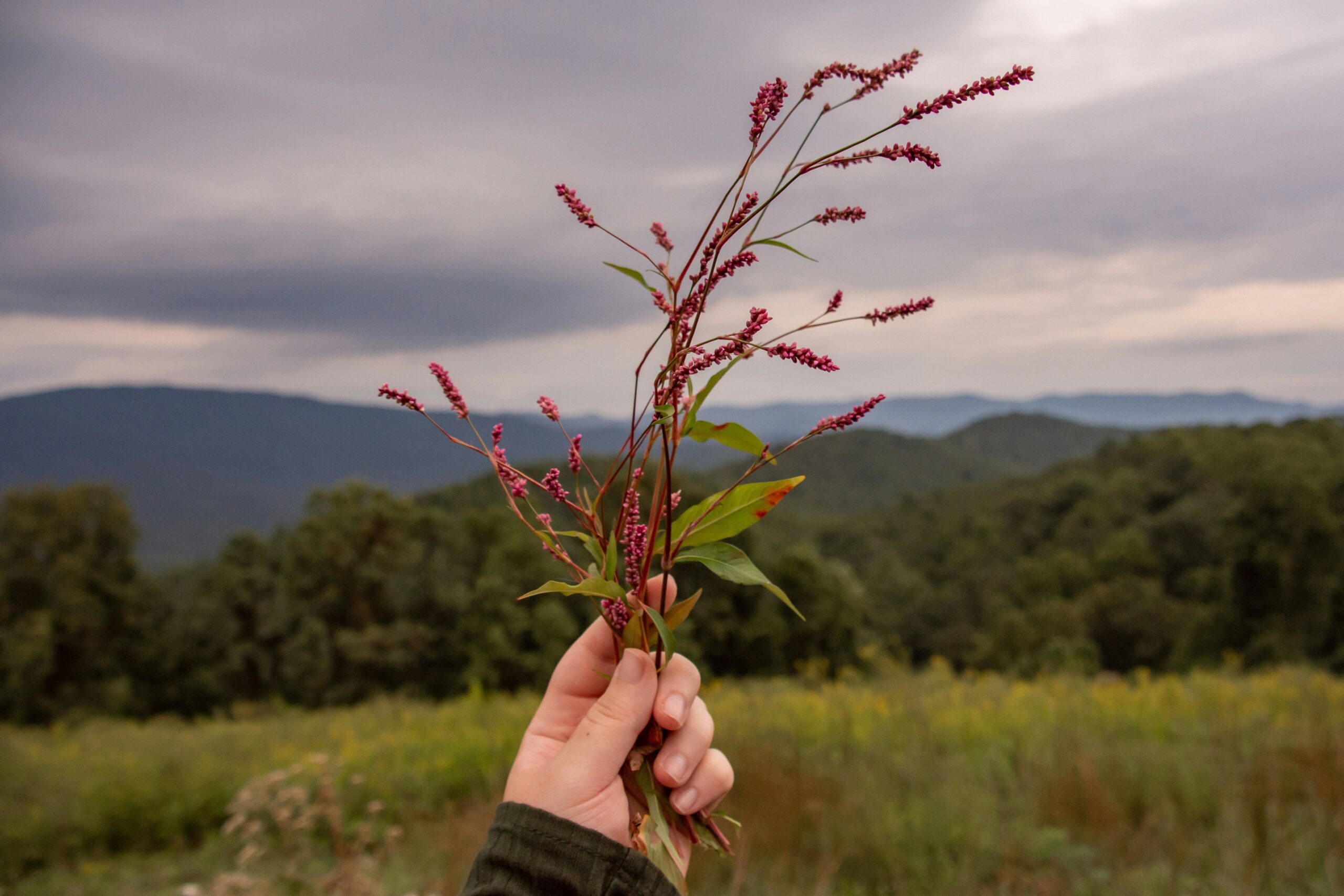Lost Honor
A sermon on Amos 8:1-12 and Braiding Sweetgrass
by Rev. Chris Bohnhoff
Friends, will you pray with me? God of Grace, although painful to hear, we thank you for prophetic words that pull us out of our own self-interests and remind us of our responsibilities as people of faith, people seeking a relationship with you. May the waters of your love cleanse us of defensiveness and leave us newly humbled, ready to care more fully for all beings. In your wisdom we were created to be reliant on each other. May we honor our place in creation by taking that responsibility seriously. Amen.
In the canon of Hebrew prophets, Amos is known as an “outside prophet.” Unlike most, Amos didn’t come from a priestly lineage or receive his education and training in the Temple or the royal court. Instead, Amos tended animals and wild fig trees in the southern kingdom of Judah, far from the center of Jewish life at the time in the northern kingdom of Israel. And while he lived in a particularly prosperous and peaceful time in Israel’s history, he didn’t share in that prosperity.
In fact, that prosperity grew, at least in part, through the upper-class exploiting people like Amos. That bit in the reading about making the shekel heavier and the ephah smaller? That was how the merchants would rig the system – how they literally put their thumb on the scales – to pay less for farmers’ crops then turn around and charge them more for the goods they needed to survive. “Buying the needy for a pair of sandals” refers to how money lenders enslaved their customers if they defaulted on a loan – and how during Amos’s time this part of the law turned from a last resort to something to be exploited to stretch profits.
Into this context – a very comfortable one for a few and an increasingly dire one for a great many more – comes the prophetic message of Amos. In the strongest possible terms, he tells truth to the nation about how their religious observances mean nothing to God when those on the margins are not only left to fend for themselves but are actively exploited.
Amos, channeling God’s anger, calls Israel into a necessary time of reckoning with what they had become as a nation: once a people who worship God, now worshipping prosperity at any cost.
I hear echoes of Amos’s message in a story that Robin Wall Kimmerer tells in her book, Braiding Sweetgrass. Lecturing at a small private college (read: expensive), she “told a traditional story of the years when the corn harvests were so plentiful that the caches were full.”
She writes, “The fields had been so generous with the villagers that the people scarcely needed to work. So they didn’t. Hoes leaned against a tree, idle. The people became so lazy that they let the time for corn ceremonies go by without a single song of gratitude. They began to use the corn in ways the Three Sisters [corn, beans, and squash] had not intended when they gave the people corn as a sacred gift of food. They burned it for fuel when they couldn’t be bothered to cut firewood. The dogs dragged it off from the untidy heaps the people made instead of storing the harvest in secure granaries. No one stopped the kids when they kicked ears around the village in their games.
“Saddened by the lack of respect, the Corn Spirit decided to leave, to go where she would be appreciated. At first the people didn’t even notice. But the next year, the cornfields were nothing but weeds. The caches were nearly empty and the grain that had been left untended was moldy and mouse-chewed. There was nothing to eat. The people sat about in despair, growing thinner and thinner. When they abandoned gratitude, the gifts abandoned them.”1 (p. 187-188)
The story has a happy ending: a small child finds the Corn Spirit and convinces her to return to the village and the Spirit agrees, on the condition that they re-find their gratitude and respect for the gifts she gave them.
But Wall Kimmerer’s point wasn’t the story itself, rather her audience’s response to it. At the reception that followed, students asked her questions while balancing Styrofoam plates filled with vegetables and dip, cheese and crackers. And at the reception’s end all the leftover food and plates – enough to feed a small village, she writes – went unthinkingly into the trash as the students left. But one of the last students to leave approached her, she writes, “gesturing with an apologetic smile at the wasted remains of the reception. ‘I don’t want you to think no one understands what you were saying,’ she said. ‘I do. You sound like my grandmother, back in my village in Turkey. I will tell her she must have a sister here in the United States. The Honorable Harvest is her way, too.”2 (p. 188-189)
The Honorable Harvest? What is this?
Another story from Wall Kimmerer to illustrate. “I once met an engineering student visiting from Europe who told me excitedly about going ricing in Minnesota with his friend’s Ojibwe family. He was eager to experience a bit of Native American culture. They were on the lake by dawn and all day long they poled through the rice beds, knocking the ripe seed into the canoe. ‘It didn’t take long to collect quite a bit,’ he reported, ‘but it’s not very efficient. At least half of the rice just falls in the water and they didn’t seem to care. It’s wasted.’ As a gesture of thanks to his hosts, a traditional ricing family, he offered to design a grain capture system that could be attached to the gunwales of their canoes. He sketched it out for them, showing how his technique could get 85 percent more rice. His hosts listened respectfully, then said, ‘Yes, we could get more that way. But it’s got to seed itself for next year. And what we leave behind is not wasted. You know, we’re not the only ones who like rice. Do you think the ducks would stop here if we took it all?’ Our teachings tell us to never take more than half.”3 (p. 181-182)
The idea of the Honorable Harvest boils down to paying attention to more than yourself and your family. It means moving through the world slowly enough to consider what will occur as the result of the harvest, of space and materials you take. Who gets more, but as importantly, who ends up with less? Can the one taken from survive the harvest, and how will the broader ecosystem be impacted? It means recognizing that our actions have both short-term and long-term consequences.
If you take the time and truly understand the space your life takes up in the world, you are bound to find yourself overstepping the lives of other beings. The Honorable Harvest doesn’t brush this knowledge off; rather, it uses the possibility of long-term harm to the ecosystem as an opportunity to show gratitude, to admit dependence, and to create deeper relationships of reciprocity.
All these stories teach that there are consequences when the harvest is not honorable. The Braiding Sweetgrass stories teach that when we only think of ourselves the wild rice can’t reseed itself, the ducks move away, and times of plenty don’t last. Amos teaches that suffering and political destabilization results when the rich turn away from God to dehumanize and exploit the poor for their own gain.
It’s hard in our time and culture of one-click, same day delivery to slow down to consider whether our harvests are honorable. When everywhere we turn our culture churns out dumpsters full of Styrofoam plates full of barely touched food, it’s so tempting to just go with the flow and think that the Honorable Harvest of one person make zero difference within the short-sighted, instant gratification paradigm in which we live. But we take the easy path at the peril of our grandchildren and the seventh generation after us, to say nothing of our own disconnection from the economy of God’s grace.
But the door is always open to regain our honor, to stop denying the existence and sacredness of our neighbors, the immigrants who harvest our food and care for our elders; the trees whacked down for our takeout containers, the waters endangered by our pipelines, the sacred lands desecrated for the rare earth minerals that go into our devices. There is always time to ask, who does today’s harvest allow to flourish? Because as both Amos and Braiding Sweetgrass teach, there is no flourishing if we don’t find ways to flourish together. Amen.
End Notes
1 Robin Wall Kimmerer. Braiding Sweetgrass (Minneapolis, MN: Milkweed Editions, 2013), p. 187-188.
2 Ibid, p. 188-189.
3 Ibid, 181-182.


Leave a Reply